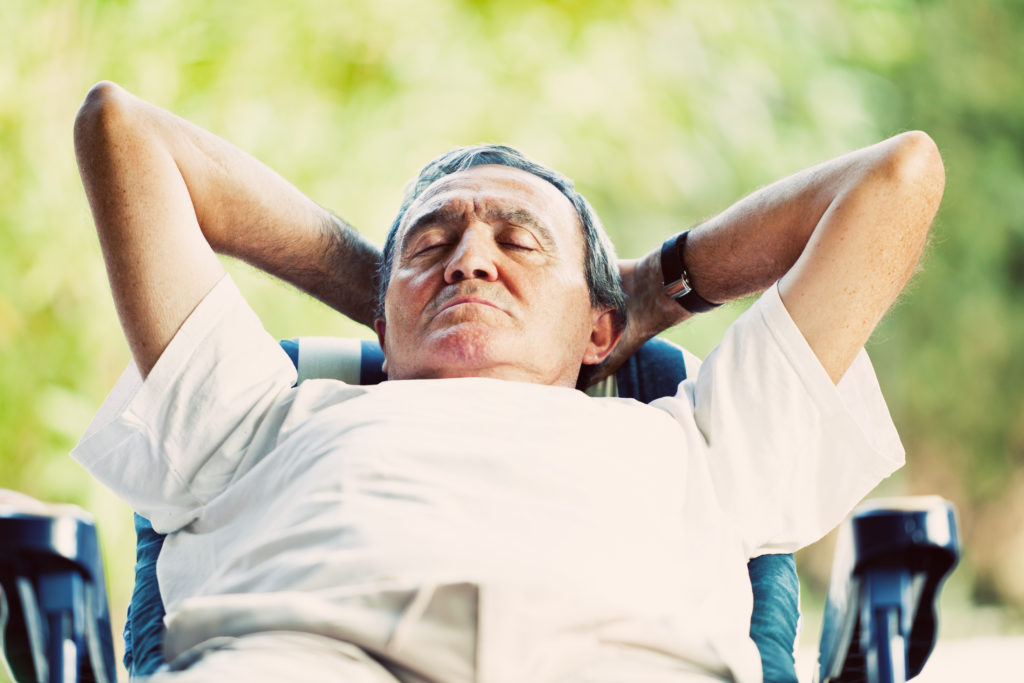Quick Hits
Daily brief research updates from the cognitive sciences
 Who wouldn’t like a daily siesta – especially when it is hot after that post lunch period! And I am sure we have all experienced that desire to sleep when it gets warmer – it pushes us to laze around.
Who wouldn’t like a daily siesta – especially when it is hot after that post lunch period! And I am sure we have all experienced that desire to sleep when it gets warmer – it pushes us to laze around.
Now we may think this is just about activity, but a group of researchers at Northwestern University in the US have peered deeper into the brain to try to find out what is happening. To do this Alpert et al. looked into the brains of fruits flies. Yes, fruit flies. You may not know this but fruit fly brains are commonly used for brain research – their brains are simple – so easier to research, easy to breed, and none of those pesky ethical limitations.
Of note is also that fruit flies have developed all over the world and are attracted to the same temperatures as human beings. They actually seem to have developed to cohabitate with human beings. And this is not the only similarity: they also seem to get dozy under similar conditions when the temperature rises post lunch.
And what did these researchers find?
Well, they managed to identify a circuit in the brain that is a heat circuit and, interestingly this is separate to another cold circuit (so not just one temperature circuit). This suggests that the circuits have distinct functions. They also think they’ve found the spot in the fly brain where these are integrated and therefore impact behaviour. This shows there is separate heat circuit in the brain that directly impacts behaviour and in our case it triggers sleepiness – and not through fatigue which is the normal process.
So, that afternoon nap on a hot day is not your imagination, it is your heat circuit in your brain activating your sleep circuits. And the research shows that an afternoon nap can be very beneficial – so maybe you shouldn’t resist!

Andy Habermacher
Andy is author of leading brains Review, Neuroleadership, and multiple other books. He has been intensively involved in writing and research into neuroleadership and is considered one of Europe’s leading experts. He is also a well-known public speaker, speaking on the brain and human behaviour.
Andy is also a masters athlete (middle distance running) and competes regularly at international competitions (and holds a few national records in his age category).
Reference
Michael H. Alpert, Hamin Gil, Alessia Para, Marco Gallio.
A thermometer circuit for hot temperature adjusts Drosophila behavior to persistent heat.
Current Biology, 2022
DOI: 10.1016/j.cub.2022.07.060
More Quick Hits
Brain Scans Can Predict Your Political Affiliation
Quick HitsDaily brief research updates from the cognitive sciences rain scanning of political partisans is not new and it has long been reported that brain scans can predict political affiliation. But those studies were scans of political partisans...
Children with Same-Sex Parents Are Socially Well-Adjusted
Quick HitDaily brief research updates from the cognitive sciences his is not the first study to report that children of same-sex parents are well adjusted, there are plenty, but it is one of the first to be representative and hence gives some...
Simple Exposure to New Things Makes Your Brain Ready to Learn
ouldn’t it be great if we could learn things with no effort? Well, actually we often do, and children learn vast quantities of information, and knowledge with little to no effort – think of how well we learn languages which become fiendishly...
So, Can Cranberries Improve Memory?
tend to be hesitant to report on studies of single foods doing amazing things (because many do), but this piece of research still caught my eye. So, what did this group of researchers from the University of East Anglia find? Well, they...
The Real Problem with Social Media: It Induces Dissociative States
Quick HitsDaily brief research updates from the cognitive sciences ocial media seems to hijack our brains – or at least according to popular narratives. Most of us have experienced this where you get stuck in an endless stream of content,...
Adventurous Play Boosts Mental Resilience in Kids
o, a simple cheap way to help your kids improve all life skills and strengthen mental wellbeing. Too good to be true? Well, this piece of research, just out, finds a fascinating correlation with mental health and kids. This correlation was...






